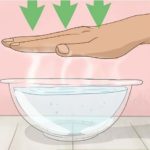The Factors that Affect the Quality and Durability of Clothes
Clothing is an essential part of our daily lives. However, choosing and caring for clothes properly is not easy. If you want your clothes to always stay fresh and durable, read this article. Below, we will give you 5 factors that affect the quality and durability of clothes, helping you to care for and use clothes most effectively.
1. Factors Affecting the Quality and Durability of Clothes
Water Temperature
Water temperature is an important factor that affects the quality and durability of clothes when washing. When the water temperature is higher, the detergent dissolves quickly, thereby enhancing the ability to remove stubborn stains effectively.
However, not all fabrics are suitable for every water temperature. If you choose the wrong temperature, the fabric can easily be damaged. Therefore, we need to choose the appropriate water temperature for each fabric to maintain the quality and durability of clothes. Here is a guide to choosing the appropriate water temperature for each type of fabric:
- Water temperature from 30 – 40 degrees Celsius: Suitable for thin fabrics, easily faded, easily torn, and woolen clothes.
- Water temperature from 40 – 60 degrees Celsius: Suitable for woolen clothes, blankets, bed sheets, cotton fabric, and sheep wool material (use 40 degrees Celsius water); towels, underwear, and synthetic fiber fabrics (use water from 40 – 60 degrees Celsius); cotton fabric, linen fabric, various cotton fabrics, and mixed fabrics (use 60 degrees Celsius water).
- Water temperature from 60 – 90 degrees Celsius: Suitable for washing clothes for infants and young children, hard-to-fade fabrics, and linen fabrics (such as bed sheets, tablecloths).

Water temperature
Time
The washing time is also a factor that affects the durability of clothes. If washed for too long, clothes can fade or shrink, while washing too short can leave stains and bacteria not completely removed.
Therefore, choose the appropriate washing time, depending on the type of clothes and the degree of dirt. To wash clothes effectively, you should divide them into relatively small batches to ensure the washing machine operates efficiently and is not overloaded.
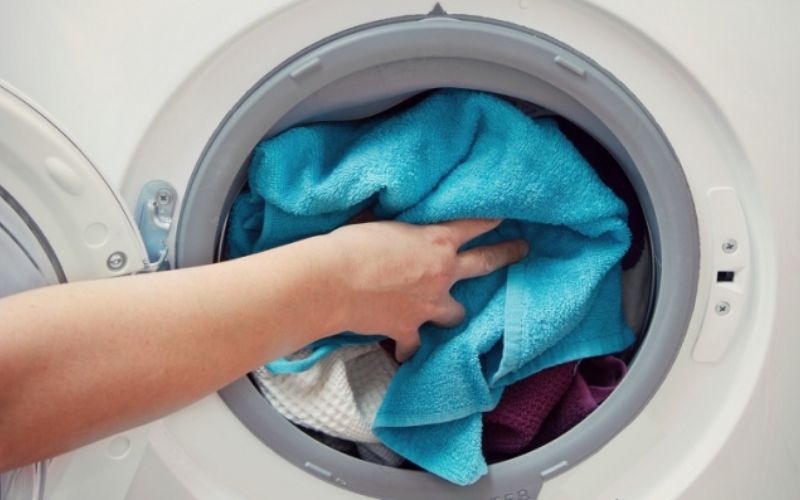
Time
Soap/Laundry Detergent
Soap/laundry detergent plays an important role in breaking down the structure of dirt on clothes. However, using too much or too little soap compared to the weight of clothes can reduce the effectiveness of cleaning.
Choosing the wrong type of soap for the washing machine is also a factor that affects the ability to clean clothes. Regularly using too much soap can cause foaming or detergent residue on the washing drum, reducing the durability of the washing machine.
Therefore, to wash clothes clean and not harm the washing machine, you need to adjust the amount of laundry detergent according to the weight of clothes and choose the right type of soap for the washing machine.
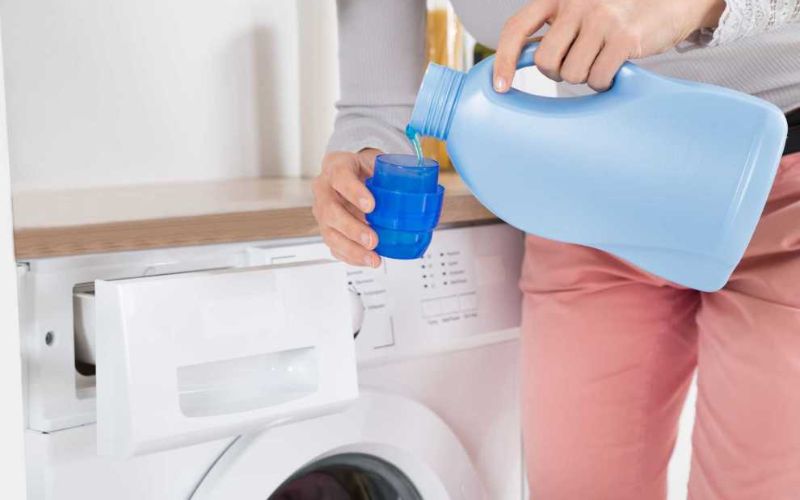
Soap/Laundry detergent
Mechanical Operation of the Machine
The washing machine operates by shaking or rotating inner parts to remove dirt. However, this process can also be harmful to clothes if the operation is too strong or not suitable for the fabric.
If the washing machine operates too vigorously, it can cause friction between the fabric fibers and make them crack. Therefore, you need to choose the appropriate washing mode for the type of clothes you are washing.
In addition, if your clothes have many details such as buttons, collars, or zippers, you should choose a gentle washing mode to avoid these details coming off the clothes.
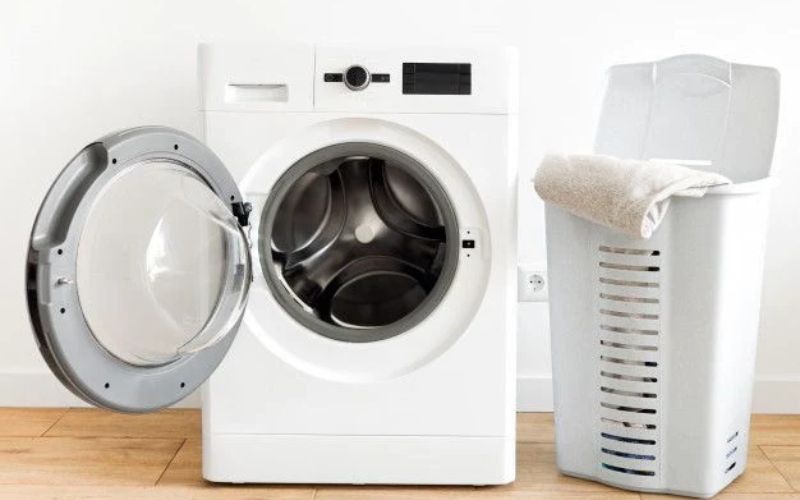
Mechanical operation of the machine
Soaking Time
Soaking time of clothes is an important factor that affects the effectiveness of cleaning and durability of clothes. If soaked for too long, stains can seep back into the clothes and create conditions for strong cleaning agents to make the clothes prone to color bleeding.
However, if soaked too quickly, the cleaning agents do not have enough time to remove dirt, especially tough stains like oil or sauce stains. Therefore, to ensure the clothes are clean and durable, you need to adjust the soaking time to suit the type of clothes and the degree of dirt.
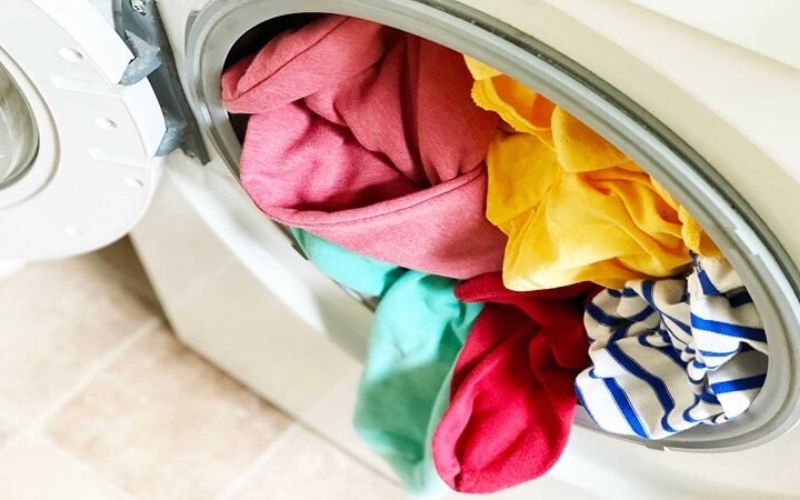
Soaking time
2. Notes on Washing Clothes
- Wash heavily soiled clothes separately to control the washing time and cleanliness effectively. The more stains there are, the longer the soaking time should be and you can use a higher water temperature to remove stains.
- Scrub the collar and sleeves before putting them in the washing machine to enhance the effectiveness of cleaning clothes, especially in hard-to-remove stain areas.
- Do not pour laundry detergent directly onto clothes as this can cause clothes to fade. Instead, put the detergent in the detergent compartment of the washing machine so that they are diluted before coming into contact with clothes.

Notes on washing clothes
Washing clothes is not just a daily task, but also a way to care for and protect our clothes. By applying the above methods, you will help keep your clothes clean and durable, and avoid problems that may arise during the washing process. Take some time to care for your clothes, as it will bring you comfort and confidence when wearing clean, fresh clothes.
How Much Laundry Detergent Should You Use in a Washing Machine?
Have you ever asked yourself how much laundry detergent is actually the best amount for your washing machine? According to research, the assumption that more detergent is better may not be accurate. In this article, we’ll investigate this topic and provide insight on how to optimize your laundry cleaning routine.
























